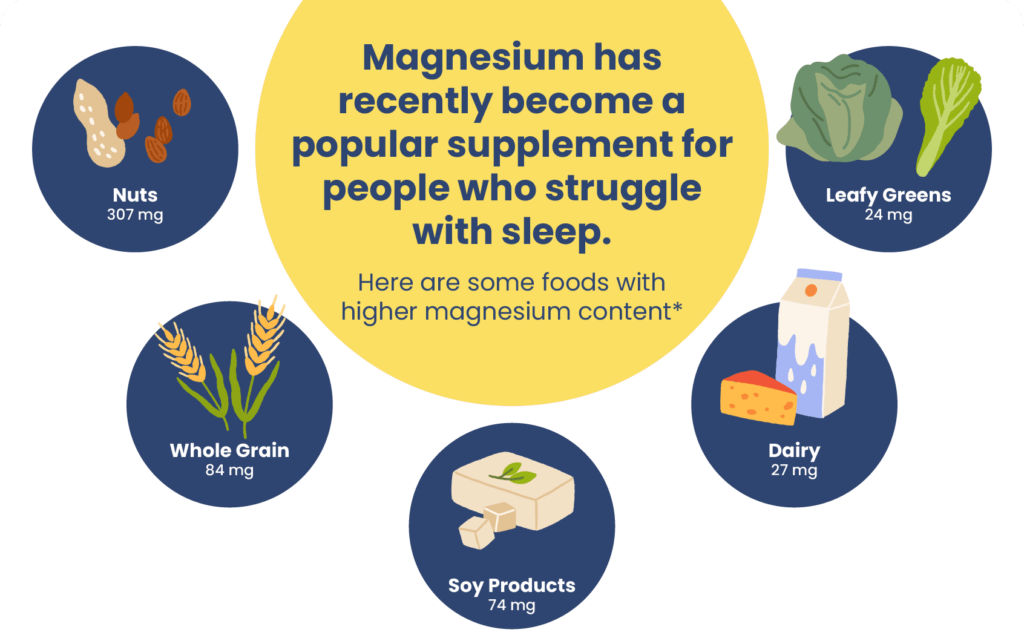
Magnesium For Better Sleep?
Kongsi
Magnesium is an essential mineral in the body that plays a role in nerve and muscle function, bone development, blood sugar control, and heart rhythm consistency. Research suggests that magnesium helps people keep healthy sleep schedules and get good quality sleep.
To maintain adequate magnesium levels, people must replenish their stores by eating magnesium-rich foods daily. Magnesium is found in foods like nuts, leafy greens, whole grains, dairy, and soy products. People who want to ensure that they are consuming enough magnesium can also take dietary supplements. The Recommended Dietary Allowance (RDA) for magnesium falls between 310 and 420 milligrams for adults, depending on age, sex, and pregnancy status.
Higher levels of magnesium in the body are associated with better sleep, longer sleep times, and less tiredness during the day. Studies of older adults also found that magnesium supplementation helped with falling asleep faster and protected against waking up earlier than intended. A few studies suggest that magnesium supplementation can help with insomnia, a disorder that involves trouble falling asleep or staying asleep.
Many people also take magnesium supplements for leg cramps and restless legs syndrome, a sleep disorder that causes uncomfortable sensations in the legs that may make it difficult to sleep. Research suggests magnesium may specifically help with nighttime leg cramps during pregnancy, since they might be caused by low magnesium levels.
How quickly magnesium glycinate helps with sleep or relaxation differs for each person. Some people may feel the effects on their sleep in a few days. For others, it may take a few weeks.
If you decide to try a supplement, tell your doctor so that they can make sure that it won’t affect any health conditions you have or medications you take.
Sources: Sleep Foundation, WebMD
